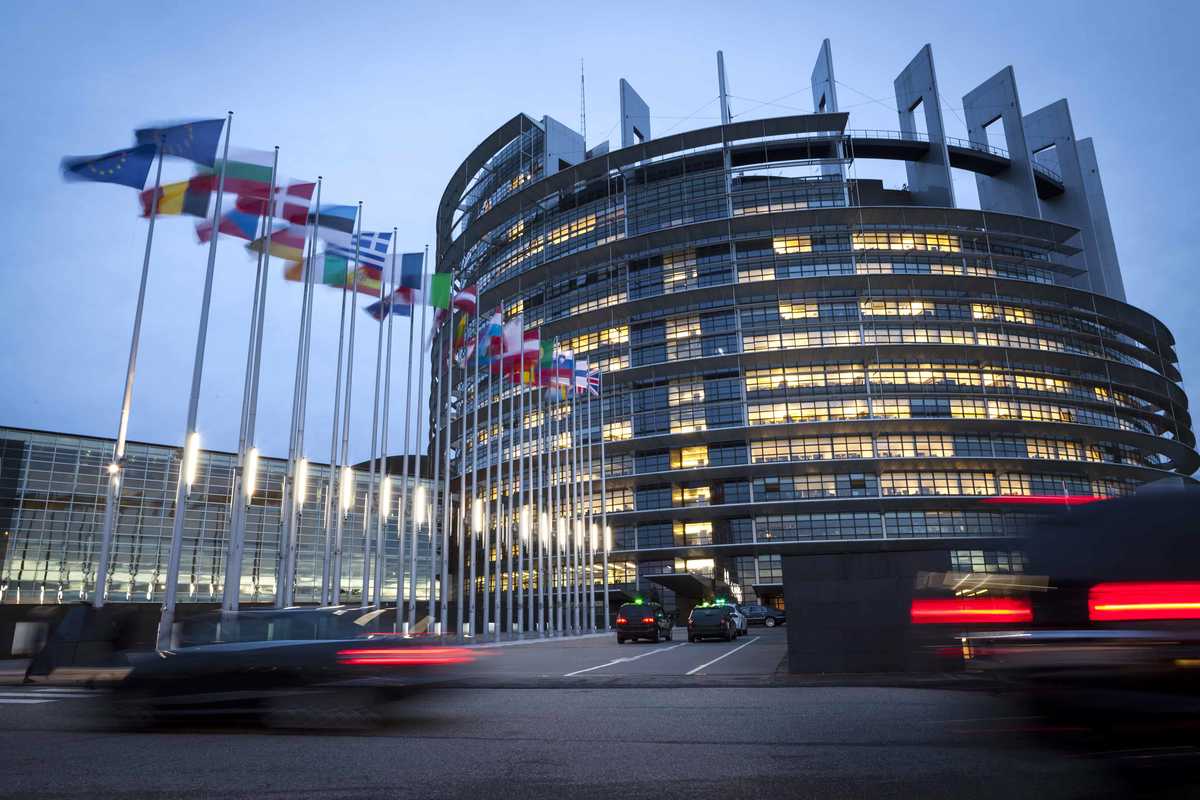EU Parliament committee approves amendments to Net-Zero Industry Act
European Parliament's Industry, Research and Energy (ITRE) committee has approved the inclusion of sustainable alternative fuel technologies, including marine fuels, in the definition of strategic technologies.
 PHOTO: The European Parliament building in Strasbourg, France
PHOTO: The European Parliament building in Strasbourg, France
An amendment to the Net-Zero Industry Act has been approved by the ITRE committee of the European Parliament.
The proposed act aims to ensure that EU manufacturing capacity for "strategic net-zero technologies" reaches 40% of the “Union’s annual deployment needs” and to capture 25% of the global market value for these technologies by 2030. The Net-Zero Industry Act will come under the purview of the EU's updated Green Deal Industrial Plan presented in February.
The amendment retains the EU Commission's net-zero technology manufacturing and net-zero strategic project classifications and sets a timeline of 9-12 months for net-zero projects and 6-9 months for strategic net-zero projects.
Strategic net-zero projects are those that are commercially available and have a good potential for rapid scale up, while net-zero projects cover all technologies that can help Europe to meet its 2030 climate goals.
The amended proposal has retained electrolysers and fuel cells, sustainable biogas/biomethane, carbon capture and storage (CCS) along with technologies related to manufacturing and deploying renewable hydrogen as "strategic net-zero technologies".
“Given their role, these technologies should benefit from even faster permitting procedures, obtain the status of the highest national significance possible under national law and benefit from additional support to crowd-in investments,” the amendment said.
In addition, the amendment led by the EU Member of Parliament (MEP) Christian Ehler proposed to include “sustainable alternative fuel technologies, including sustainable aviation and maritime fuels” as part of the definition of strategic net-zero technology.
The amendment proposes to include nuclear technologies, including “fusion and fission” and small modular reactors under the definition of net-zero technology.
The ITRE also approved the EU target of 50 million mt/year of CO2 injection capacity by 2030 as proposed by the Commission. Additionally, it proposed fixing targets for 2035, 2040, and 2050 from the Commission and promoting the geographical spread of storage sites throughout the EU.
The ITRE committee has “broadened the scope of the draft legislation to encompass the entire supply chain, including components, materials, and machinery for producing net-zero technologies,” the EU Parliament said.
“The Net-Zero Industry Act could be a crucial element in preventing Europe from taking the path of decarbonisation through deindustrialisation. We can still reverse that course, and this law will help,” Ehler said. “It is an important step towards a real market-based industrial policy and will facilitate the creation of business cases to scale-up production for net-zero industries in Europe.”
The proposal will now be voted on at the plenary session of the European Parliament in Strasbourg from 20-23 November. Parliament and the European Council must adopt their respective positions before discussions can begin regarding the final version of the law.
By Konica Bhatt
Please get in touch with comments or additional info to news@engine.online





